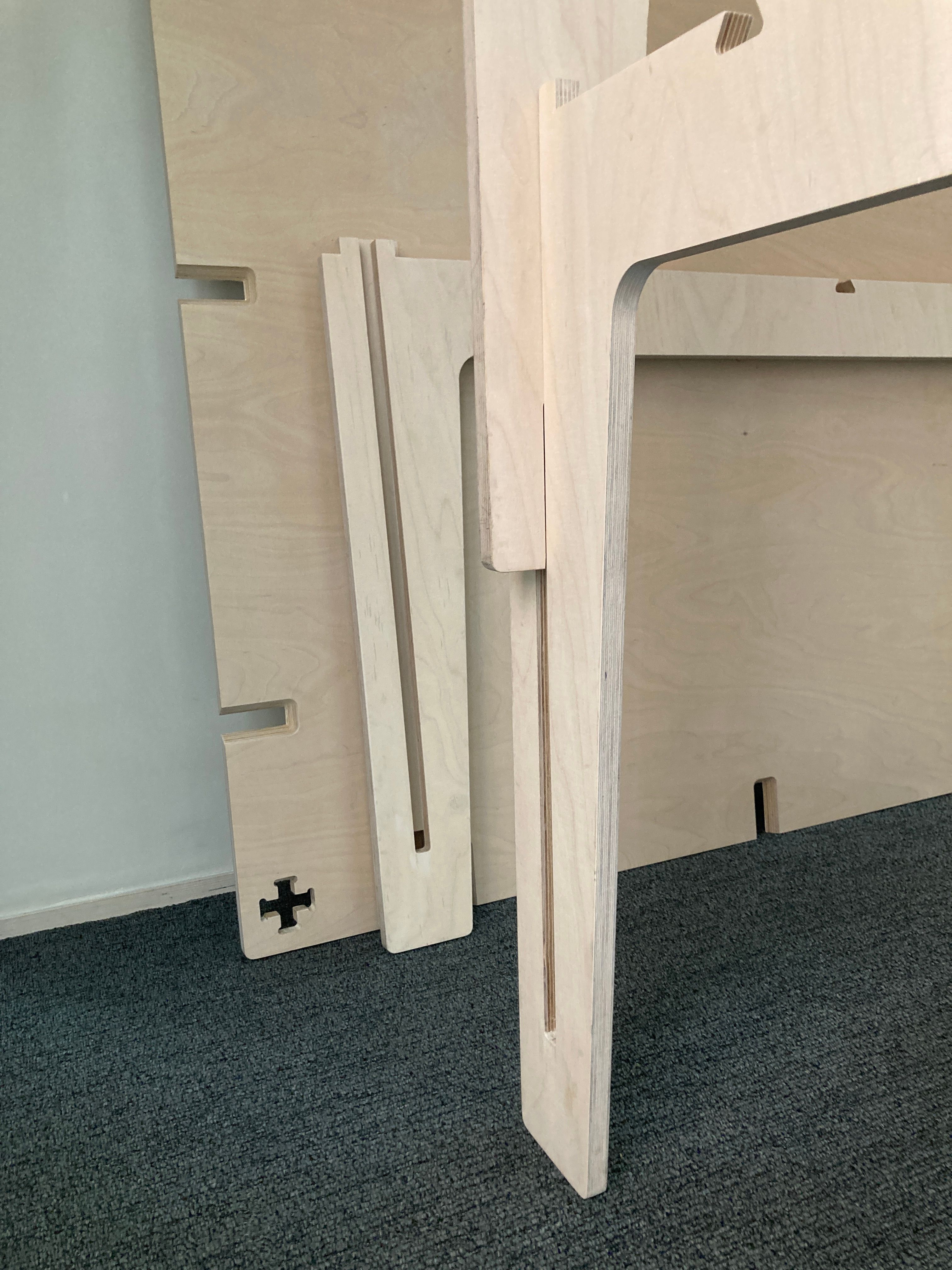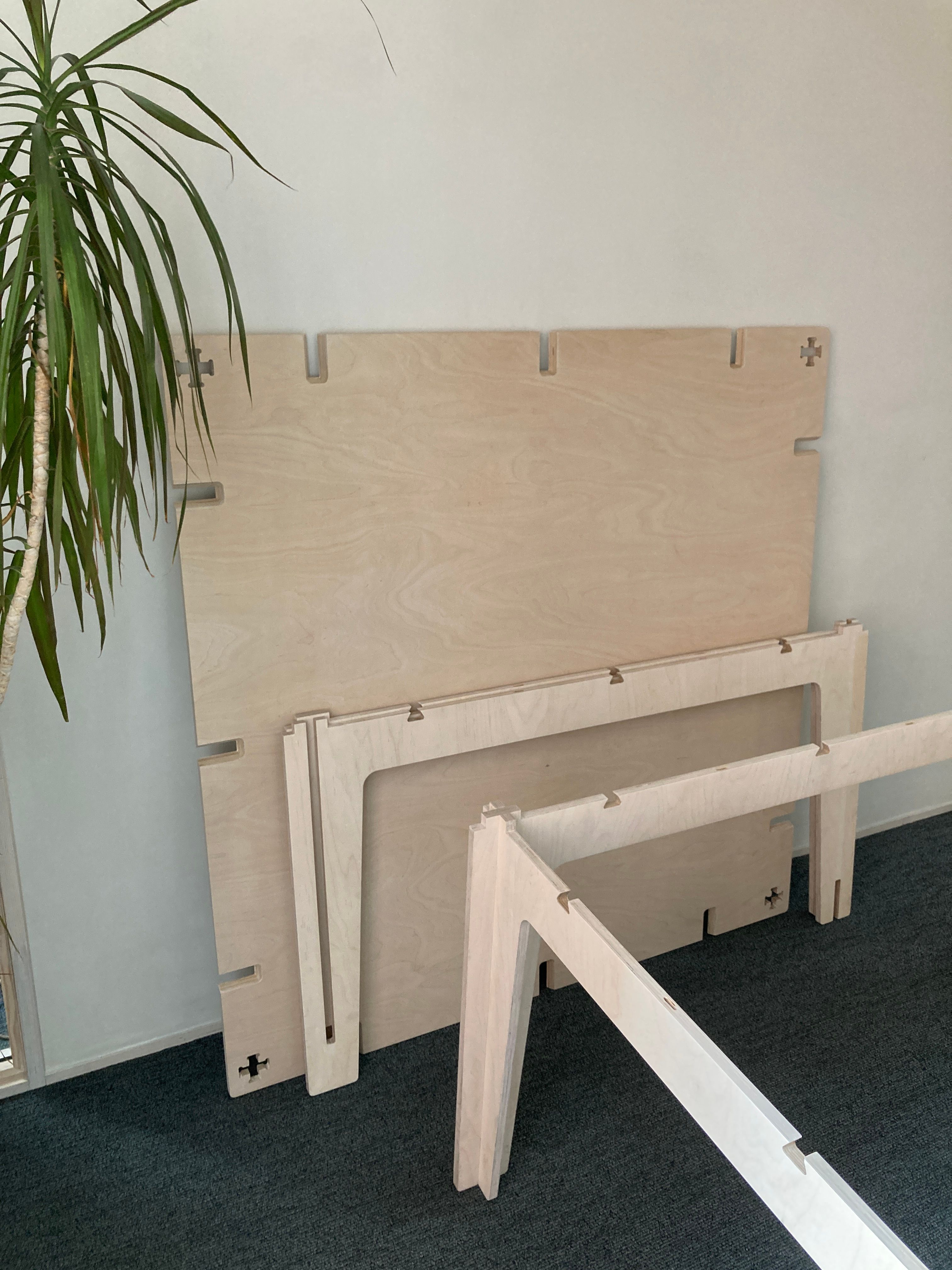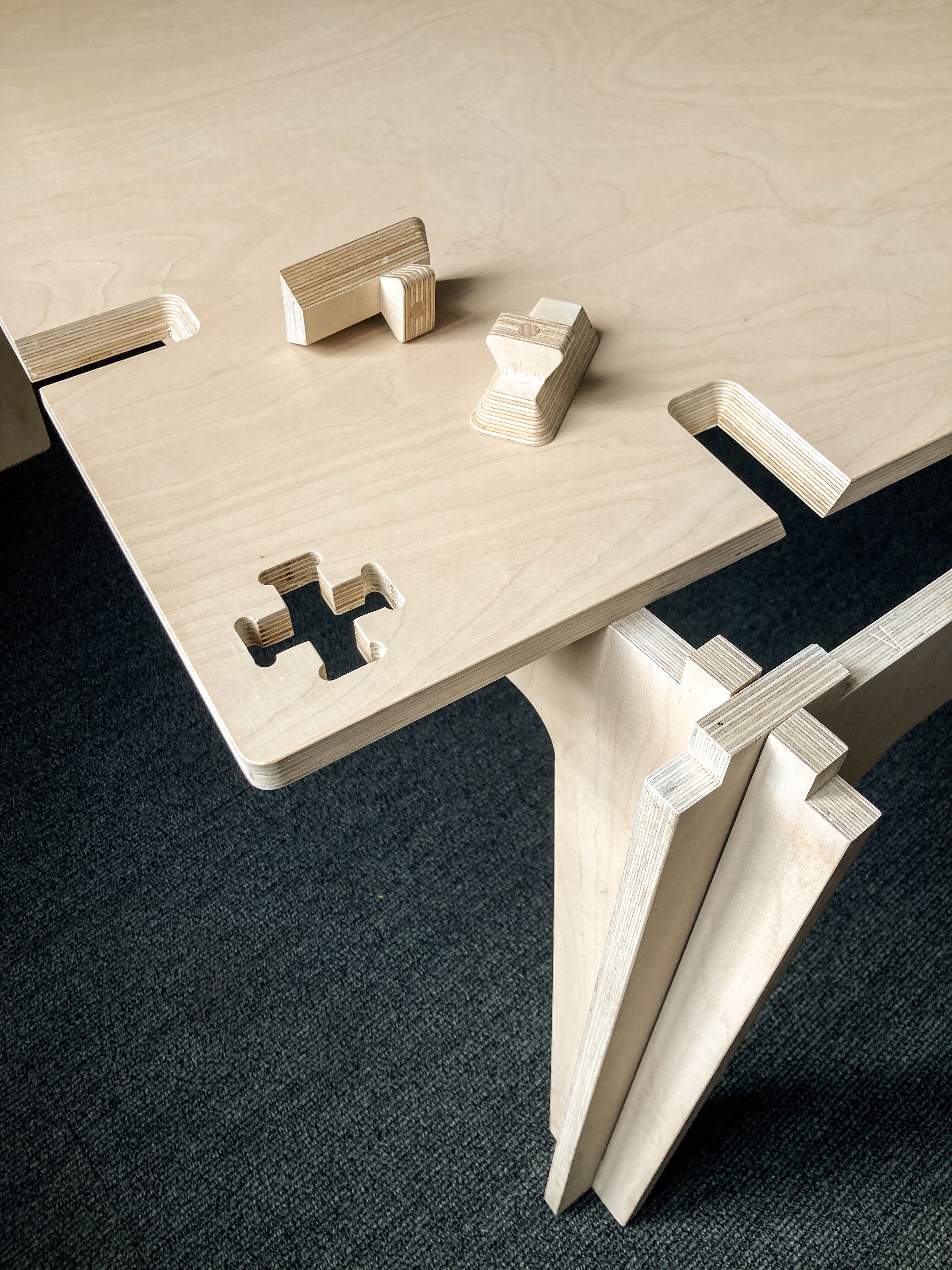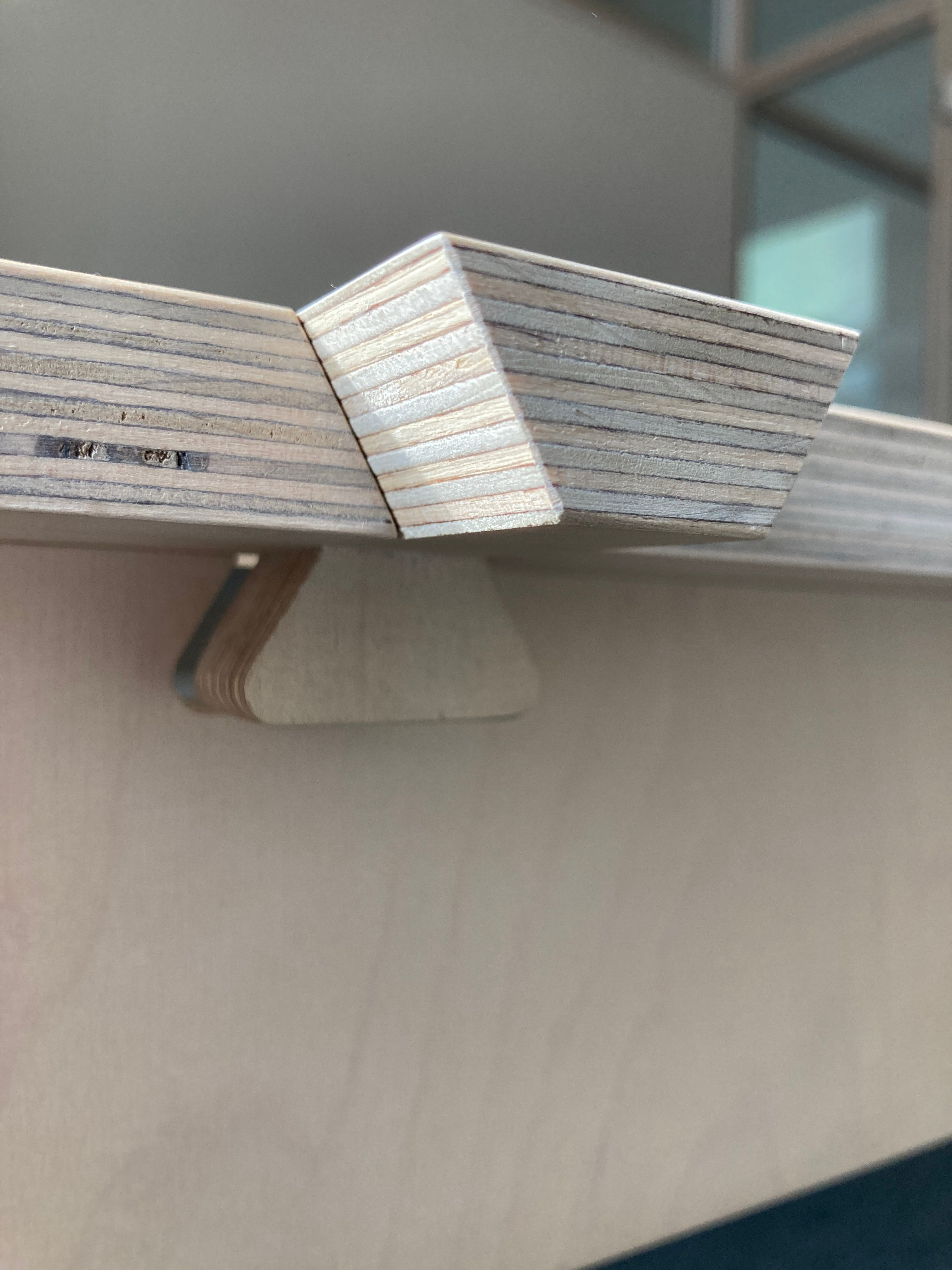Prototyping
We are really good at endurance
X-SYS - a circular furniture system
X-SYS is a furniture system for a dynamically changing society that can be easily converted even by laypeople and can be expanded and recycled as part of sharing models in partnership with the manufacturer. This keeps the furniture components permanently in the material cycle, saves resources and avoids CO2 emissions. The concept is a contribution to the sharing economy, which is an essential building block of the circular economy.
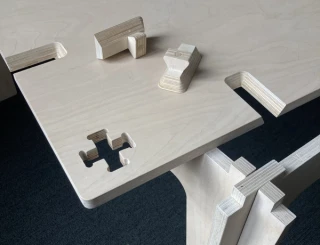
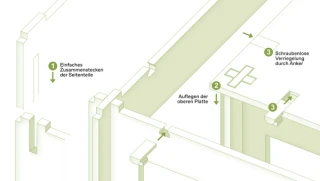
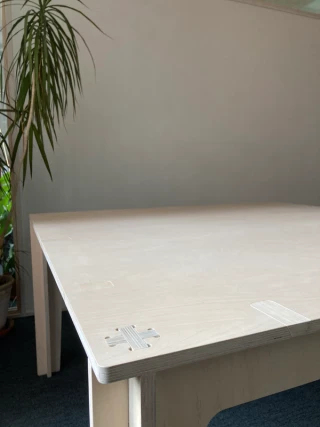
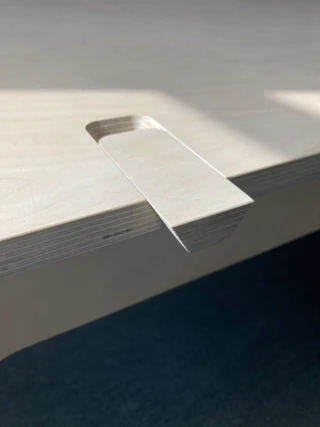

The product consists of a single commercially available building material, birch furniture plywood. It can be assembled and disassembled without tools thanks to simple plug-in connections. The modular design makes it easy to convert and reuse. Storage and transportation are space-saving and compact. The surfaces, nodes and connection points can be produced in CNC production and are therefore easily scalable. Decentralized production is possible, which shortens transport routes and decentralizes value creation. This creates added value at every point in the value chain.
Translated with DeepL.com (free version)
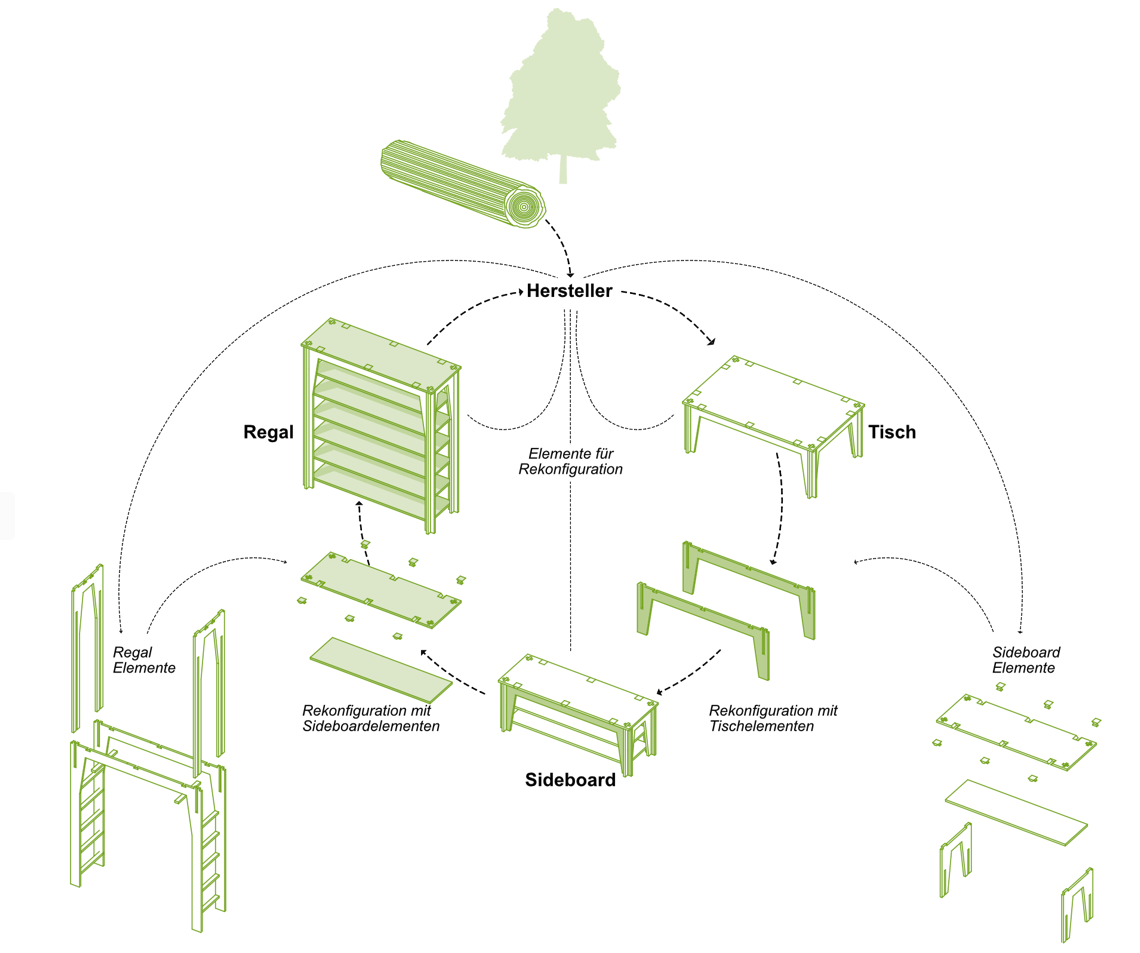
The exclusively plug-in connections make it easy for users to reassemble and disassemble. Stacking the individual components enables space-saving storage. In addition, economical transportation can be ensured, which enables a sharing/rental/leasing system in the future. In this way, the furniture system can become a service that makes it possible to keep the resource permanently and efficiently in the material cycle. In terms of resource consumption and CO2 emissions, this creates substitution effects in terms of resource requirements and CO2 emissions with each new material cycle.

lorem
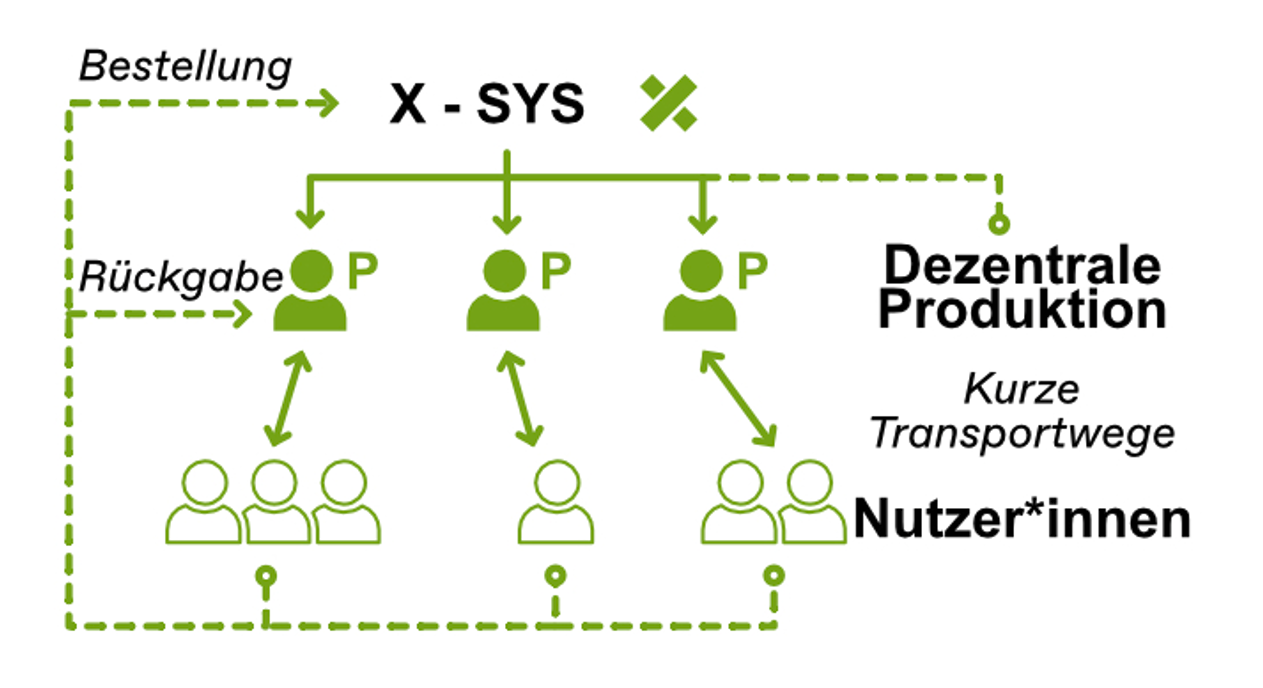
Teilen statt besitzen: unsere Gesellschaft ist seit der industriellen Revolution stark von linearen Wirtschaftsmodellen geprägt. Wir konsumieren Produkte indem wir sie kaufen und damit besitzen. In der Regel werden diese nach deren Gebrauch entsorgt und folgen damit dem Prinzip "take >> make >> waste". Den Produkten inkl. der darin enthaltenen Materialien wird wenig Wertschätzung entgegen gebracht. Das betrifft die Nuter*innen, aber auch die Hersteller, die weniger Interesse an Qualität und Langlebigkeit der Produkte haben, weil dies im Zweifel nicht bezahlt werden will.1.484 / 5.000
Übersetzungsergebnisse
Übersetzung
Sharing instead of owning: our society has been heavily influenced by linear economic models since the industrial revolution. We consume products by buying them and therefore owning them. As a rule, these are disposed of after use and therefore follow the “take >> make >> waste” principle.The products, including the materials they contain, are shown little appreciation. This affects the users, but also the manufacturers, who have less interest in the quality and longevity of the products because, in case of doubt, they do not want to pay for this.Our product works on two levels in the sense of a long-lasting, recyclable and expandable system:1. The product can be purchased and can be easily assembled and converted even by inexperienced users without tools. If usage requirements are adjusted, individual components can be reordered and a table becomes a sideboard, for example. Etc.2. Product as a service: in the leasing/sharing model, a complete return of the furniture components would be possible; they can easily be refurbished by the manufacturer and transferred back into a new usage cycle.This approach fundamentally changes the behavior of users and manufacturers:The furniture is used rather than owned. And furniture was lent instead of sold. In addition, new partnerships are created between consumers and producers, which leads to added value for both sides in a WIN-WIN strategy.

